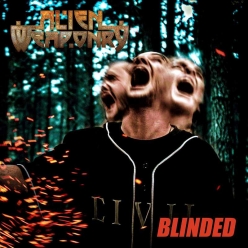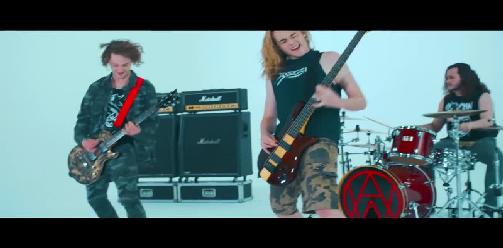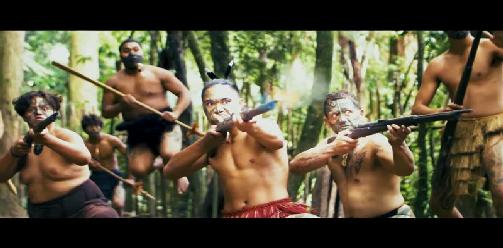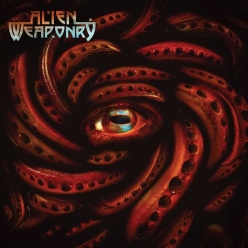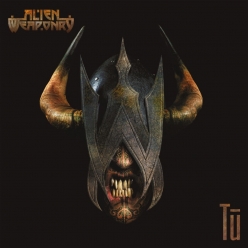Biography
Alien Weaponry is a three-piece teenage band from Waipu, New Zealand, formed in 2010 by brothers Henry and Lewis de Jong. The band consists of Lewis de Jong (guitar and vocals), Henry de Jong (drums), and Ethan Trembath (bass guitar).
Alien Weaponry's début single, "Urutaa", is sung partly in the Māori language and was originally about a clash of ideas and expectations leading to stress and unhappiness, which was likened to a plague or urutaa (an outbreak). The Maori lyrics refer to events that occurred in the Bay of Islands in the 1800s and what followed after a pocket watch was inadvertently dropped into the harbour. The misunderstanding culminated in the burning of the Boyd, a grim set of events in New Zealand's colonial history. Says the band "This incident is used in this song as a metaphor for the misunderstandings that continue to plague us today – between cultures, generations and individuals who torment each other through lack of understanding."
The band's second single "Raupatu" (released in February 2017) is about land confiscations by the New Zealand colonial government in the 1800s and the unjust legislation of 1863 that allowed it to happen. Their third single, "Rū Ana te Whenua" (the trembling earth), released 1 July 2017, refers to the mighty battle at Pukehinahina/Gate Pa in 1864 where their great great great grandfather, Te Ahoaho, lost his life.
The band’s English material is equally controversial, with songs like "Hypocrite", "Rage", "PC Bro’", and "The Cult of Sanitised Warfare" calling out everyone from teachers and friends at school to the media for variously glorifying and destroying the lives of television and sports stars. “We listened to all sorts of music when we were younger,” says lead singer and guitarist Lewis de Jong, “but we were drawn to thrash metal because it’s quite complex music, and it is a great vehicle for expressing real stories and emotions.” “It also works with Te Reo Māori,” adds his brother Henry. “Both the musical style and the messages have a lot of similarities with haka, which is often brutal, angry and about stories of great courage or loss.”

